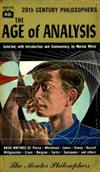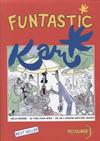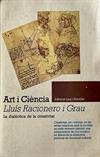Recent Book Activity

The Holy Thief

Little Black Bastard

The Best Australian Poetry 2005 (Best Australian Poetry series)

VIOLIN (by the author of Interview With A Vampire) [Paperback] by ANNE RICE

Of love and shadows

The Wasp Factory

Eaters of the Dead

Gorky Park

The Historian

The Last Theorem

Windhaven

Joe Cinque's Consolation : A true story of death, grief and the law.

The Thirteenth (Vampire Huntress Legends)

This Is Your Brain on Music: The Science of a Human Obsession

Salzburg Tales (Oe)

The Road

Baltimore Blues (Tess Monaghan Investigation)

Flood, The

The Tin Roof Blowdown (Dave Robicheaux Series #16)

The Girl with the Dragon Tattoo (Millennium Trilogy)
Statistics |
4 weeks | all time |
|---|---|---|
| books registered | 0 | 88 |
| released in the wild | 0 | 82 |
| controlled releases | 0 | 0 |
| releases caught | 0 | 59 |
| controlled releases caught | 0 | 0 |
| books found | 0 | 49 |
| tell-a-friend referrals | 0 | 0 |
| new member referrals | 0 | 0 |
| forum posts | 0 | 0 |
Extended Profile
I've just finished reading Choke by Chuck Plahniuk and The Time Machince by H.G. Wells.
From Barry Jones "Dictionary of World Biography": "Brahe, Tycho (1546-1601). Danish astronomer, born in Scania (south Sweden). Attracted to the study of stars by an eclipse that occured during his student days at Copenhagen University, he later established, under the patronage of King Fredrick II, a large and well equipped observatory on the island of Haveen. There he made a series of observations more comprehensive and accurate than any previously recorded. Brahe did not accept in full the astronomical system of Copernicus [that the planents revolved around the sun], for though be beleived that the five known planets revolved around the sun he still affirmed that the sun itself, as well as the moon, revolved around the earth. So accurate were his observations however, that Kepler was later able to deduce the laws of planetary motion from them. King Frederick's death in 1988 exposed Tycho Brahe to the hostility of his fellow nobles, prejudiced against him because of his work and the [former] king's favour. He went to Prague, where the emperor Rudolf II provided an observatory form him, and Kepler joined him as an assistant."
I previously wrote: "What this entry doesn't say is that Brahe withheld his observations for a long time and it wasn't until his death of retirement that Kepler was able to complete his work". Having read a detailed biography, somewhere on my bookshelf, what I wrote here was very simplistic. Brahe's work, predated the imperative to publish, in general new knowledge permiated much slower than we are used to today, his work was expensive and he needed patronage to persue it, the way to gain patronage, is to present the patron with a limited edition of your work, he in fact founded his own printing press and lead in scientific publication of the time. While he was secrative and protective of his work, it was understandable in the historical context.
Perhaps the choice of screen name is an acknowledgement of a personal flaw. Hopefully my library will be seen by more eyes in future.
From Barry Jones "Dictionary of World Biography": "Brahe, Tycho (1546-1601). Danish astronomer, born in Scania (south Sweden). Attracted to the study of stars by an eclipse that occured during his student days at Copenhagen University, he later established, under the patronage of King Fredrick II, a large and well equipped observatory on the island of Haveen. There he made a series of observations more comprehensive and accurate than any previously recorded. Brahe did not accept in full the astronomical system of Copernicus [that the planents revolved around the sun], for though be beleived that the five known planets revolved around the sun he still affirmed that the sun itself, as well as the moon, revolved around the earth. So accurate were his observations however, that Kepler was later able to deduce the laws of planetary motion from them. King Frederick's death in 1988 exposed Tycho Brahe to the hostility of his fellow nobles, prejudiced against him because of his work and the [former] king's favour. He went to Prague, where the emperor Rudolf II provided an observatory form him, and Kepler joined him as an assistant."
I previously wrote: "What this entry doesn't say is that Brahe withheld his observations for a long time and it wasn't until his death of retirement that Kepler was able to complete his work". Having read a detailed biography, somewhere on my bookshelf, what I wrote here was very simplistic. Brahe's work, predated the imperative to publish, in general new knowledge permiated much slower than we are used to today, his work was expensive and he needed patronage to persue it, the way to gain patronage, is to present the patron with a limited edition of your work, he in fact founded his own printing press and lead in scientific publication of the time. While he was secrative and protective of his work, it was understandable in the historical context.
Perhaps the choice of screen name is an acknowledgement of a personal flaw. Hopefully my library will be seen by more eyes in future.













